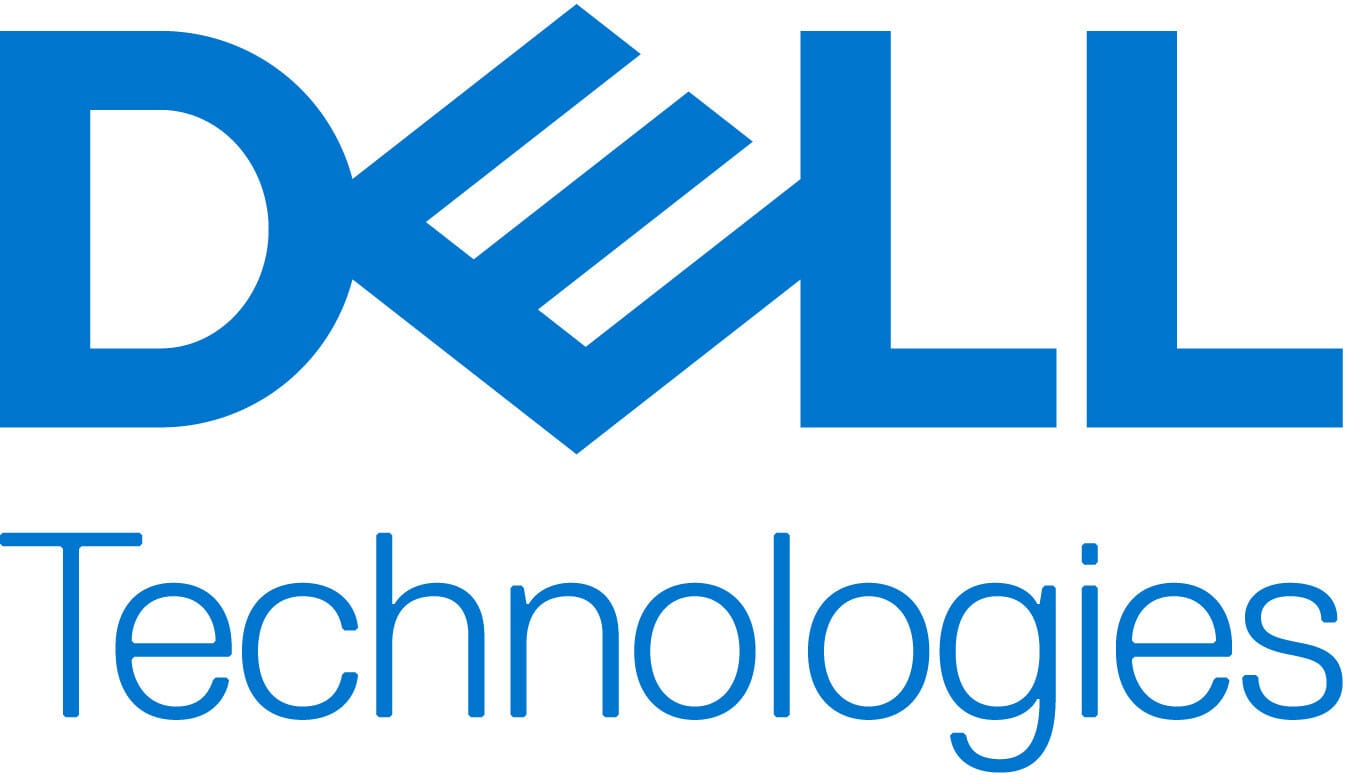The Ever-Evolving Cybersecurity Landscape: A Week in Review. 05/05/2024

Hello, tech enthusiasts! Here's your weekly roundup of the top five tech stories making waves. Let's dive right in.
Dell Data Breach
Dell, the computing giant, confirmed a data breach that compromised 'limited' customer information such as names and physical addresses. The breach reportedly affected nearly 49 million users. The company is investigating the incident and has not disclosed whether it was caused by malicious outsiders or an inadvertent error.

Dell, a leading technology company, has confirmed a data breach that has exposed 'limited' customer details such as names and addresses. The breach is said to have impacted nearly 49 million users. This isn't Dell's first encounter with a data security incident, having experienced a network breach in 2018. The company is currently investigating the incident and has yet to reveal whether the breach was the result of malicious activity or an inadvertent error.
The stolen customer information, as per both Dell's notification and the advertisement for sale (which was later removed from Breach Forums, an online marketplace for buying and selling stolen data), included Name, Physical address, Dell hardware and order information, including service tag, item description, date of order, and related warranty information.
The hacker responsible for the Dell data breach has not been identified publicly. The breach was first reported when someone on a hacking forum advertised "customer and other information of systems purchased from Dell between 2017 and 2024"⁵. The person claimed that the dataset included information on 49 million people.
The data reportedly included full names, addresses, the system’s service tag, customer number, and more. This data aligns with what Dell disclosed was stolen. The hacker claimed to be the sole possessor of this data, underscoring the severity of the breach.
Dell's spokesperson declined to comment on the forum post and did not dispute the hacker’s claims. The investigation is ongoing, and more information may become available as it progresses. It's important to note that while the hacker's identity remains unknown, the impact of their actions is significant and has raised concerns about data security and privacy.
If you're a Dell customer and are worried about what to do next, here are some steps you can take:
Change your passwords: Dell customers are strongly advised to change their passwords immediately. It's also recommended that you change the same password across multiple accounts.
Monitor your accounts: Even though no financial information was exposed, it's always a good idea to monitor your bank statements and consider signing up for identity theft protection.
Be cautious of phishing attempts: Given that the information has likely already been acquired, if you're a Dell customer who purchased hardware between 2017 and 2024, it would be wise to be extra cautious of any communication claiming to be from Dell, especially if it arrives in your mailbox.
Remember, it's always better to be safe than sorry when it comes to data breaches. Stay alert and protect your information.
Adobe's Legal Warning
Adobe has warned its users that they could face legal issues for using older versions of its software, including Photoshop⁵. The company stated that users are no longer licensed to use specific older versions of the applications. The move has raised questions about ownership and control in the era of digital products.

Adobe has warned its users that they could face legal issues for using older versions of its software, including Photoshop. The company stated that users are no longer licensed to use specific older versions of the applications. The move has raised questions about ownership and control in the era of digital products.
Adobe sent out an email to customers telling them:
"For customers who have not yet updated to the latest version of Creative Cloud, please note that you are no longer licensed to use certain older versions of the applications or deploy packages containing these older versions. We ask that your organization discontinues all usage of the unauthorized products listed in the table below, and instead update to the authorized versions provided. You will continue to receive all the value that Creative Cloud has to offer, but with more advanced features, capabilities and security. Please be aware that if you continue to use or deploy these unauthorized versions of Creative Cloud, you may be at risk of potential claims of infringement by third parties."
The company didn’t inform users why they needed to discontinue use of the software, but the company’s Twitter account indicated the issue stems from “ongoing litigation.” The case is most likely related to a lawsuit against the corporation by Dolby Labs. Dolby’s lawsuit accused Adobe of copyright violations related to how this new model would calculate the licensing costs Adobe paid to Dolby.
In a statement to Motherboard, Adobe confirmed the letter's authenticity but wouldn’t provide any additional detail beyond what was included in the notices. It’s yet another example of how the products we buy in the modern era can lose functionality or stop working entirely on a lark.
If you're an Adobe user and are worried about what to do next, here are some steps you can take:
Update your software: Adobe recommends that all users update to the latest version of Creative Cloud to avoid any potential legal issues.
Contact Adobe Support: If you have any questions or concerns, it's always a good idea to contact Adobe's customer support for guidance.
Stay informed: Monitor Adobe's official communications for any policy updates or changes.
Remember, it's always better to use the latest and most secure versions when it comes to software. Stay safe and protect your digital rights.
ChatGPT Search Engine
OpenAI, the company behind ChatGPT, is rumoured to be planning to launch a search engine. Despite reports, OpenAI has denied that it is launching a search product. The speculation has been fuelled by reports that OpenAI has a search product in development.

OpenAI, the company behind ChatGPT, has been rumoured to be planning to launch a search engine. Despite reports, OpenAI has denied that it is launching a search product. The speculation has been fueled by reports that OpenAI has a search product in development.
According to The Information, the product will be partly powered by Bing (Microsoft is a major OpenAI investor and partner); Bloomberg said it will work as a feature within ChatGPT, allowing the chatbot to search the web and cite sources — making it less of a black box that returns answers of unknown origin.
The idea of a ChatGPT search engine makes sense, given that Microsoft, a significant investor in OpenAI, has not been able to compete against Google Search with Bing. According to a February report in The Information, OpenAI’s search engine would presumably be partially based on Bing’s technology, which could represent the most significant challenge yet to Google’s dominance.
Details about the ChatGPT search engine are scarce, but May 9 is just around the corner. So, if everything, as it seems, is confirmed, we won’t have to wait long to find out what OpenAI has been preparing.
Automated Emergency Braking Requirement
The National Highway Traffic Safety Administration's, part of the US Department of Transportation, new automatic emergency braking rule requires automakers to develop and equip vehicles with currently unavailable technology. All cars will be required to have enhanced automated emergency braking by 2029.

The National Highway Traffic Safety Administration (NHTSA) has finalized a new Federal Motor Vehicle Safety Standard that will make automatic emergency braking (AEB), including pedestrian AEB, standard on all passenger cars and light trucks by September 2029. This safety standard is expected to reduce rear-end and pedestrian crashes⁵ significantly.
AEB systems use sensors to detect when a vehicle is close to crashing into a vehicle or pedestrian in front and automatically apply the brakes if the driver has not. Pedestrian AEB technology detects pedestrians in both daylight and darker nighttime conditions. This will significantly reduce injury or property damage and associated costs from these crashes.
The new standard requires all cars to be able to stop and avoid contact with a vehicle in front of them up to 62 miles per hour and that the systems must detect pedestrians in both daylight and darkness⁵. In addition, the standard requires that the system apply the brakes automatically up to 90 mph when a collision with a lead vehicle is imminent and up to 45 mph when a pedestrian is detected.
The regulation, which will require additional engineering to bolster software and possibly add hardware such as radar, won't go into effect for more than five years. That will give automakers time to reinforce their systems during the normal model update cycle, NHTSA said,
It also will drive up prices, which NHTSA estimates at $354 million per year in 2020 dollars, or $82 per vehicle. But it will save 362 lives per year, prevent about 24,000 injuries and save billions in property damage.
Critics say the standards should have come sooner and that they don’t appear to require that the systems spot people on bicycles, scooters or other vulnerable people.
Monzo Secures Additional Funding
UK-based digital bank Monzo has secured an additional $190 million in its latest round of funding. The digital challenger’s post-money valuation now surpasses $5.2 billion. The new funding adds to Monzo’s initial $430 million raise in March.

Monzo, the UK-based digital bank, has secured an additional $190 million in its latest round of funding. New and existing investors supported this funding round, including CapitalG, the independent growth fund of Google’s parent company Alphabet, and UK-based VC firm Hedosophia. The new funding adds to Monzo’s initial $430 million raise in March¹.
The digital challenger plans to leverage its latest funds to satisfy its ongoing growth initiatives. Some of its new products that have hit the market include instant access savings accounts, a retail investment service, cashback rewards, a mortgage tracker, and a call status fraud prevention tool. The firm now serves over 9 million retail customers – up 2 million from 2022’s figures – and over 400,000 business customers. This growth supported the digital challenger’s shift into profitability in March 2023.
According to its latest financial statement, Monzo secured approximately $450 million in revenues in 2023. The new funds will also likely help fuel the company’s renewed push to tap into the US market after the firm hired Conor Walsh, former head of global product at Square’s mobile payment service Cash App, as its new US CEO in October last year.
Monzo's post-money valuation now surpasses $5.2 billion. The company aims to develop new products while accelerating its global presence, striving to become the primary destination for all financial needs. Monzo boasts a significant user base, with over 9 million retail customers in the UK and over 400,000 business clients.
In its efforts to encourage investment, Monzo introduced a feature allowing customers to invest in funds managed by BlackRock. A substantial portion of investors are first-time investors. Monzo’s ambitious plans extend beyond the UK as the company renews its efforts to expand in the US market.
In conclusion, the world of technology is ever-evolving, and staying updated with the latest news is crucial. This week has been filled with significant developments, from Dell’s data breach to Adobe’s legal warning, from the rumoured ChatGPT search engine to the new Automated Emergency Braking Requirement, and Monzo securing additional funding. As we navigate these changes, staying informed and prepared is essential. Watch for our next weekly roundup to stay ahead in this fast-paced tech world. Until then, stay safe and stay connected!




